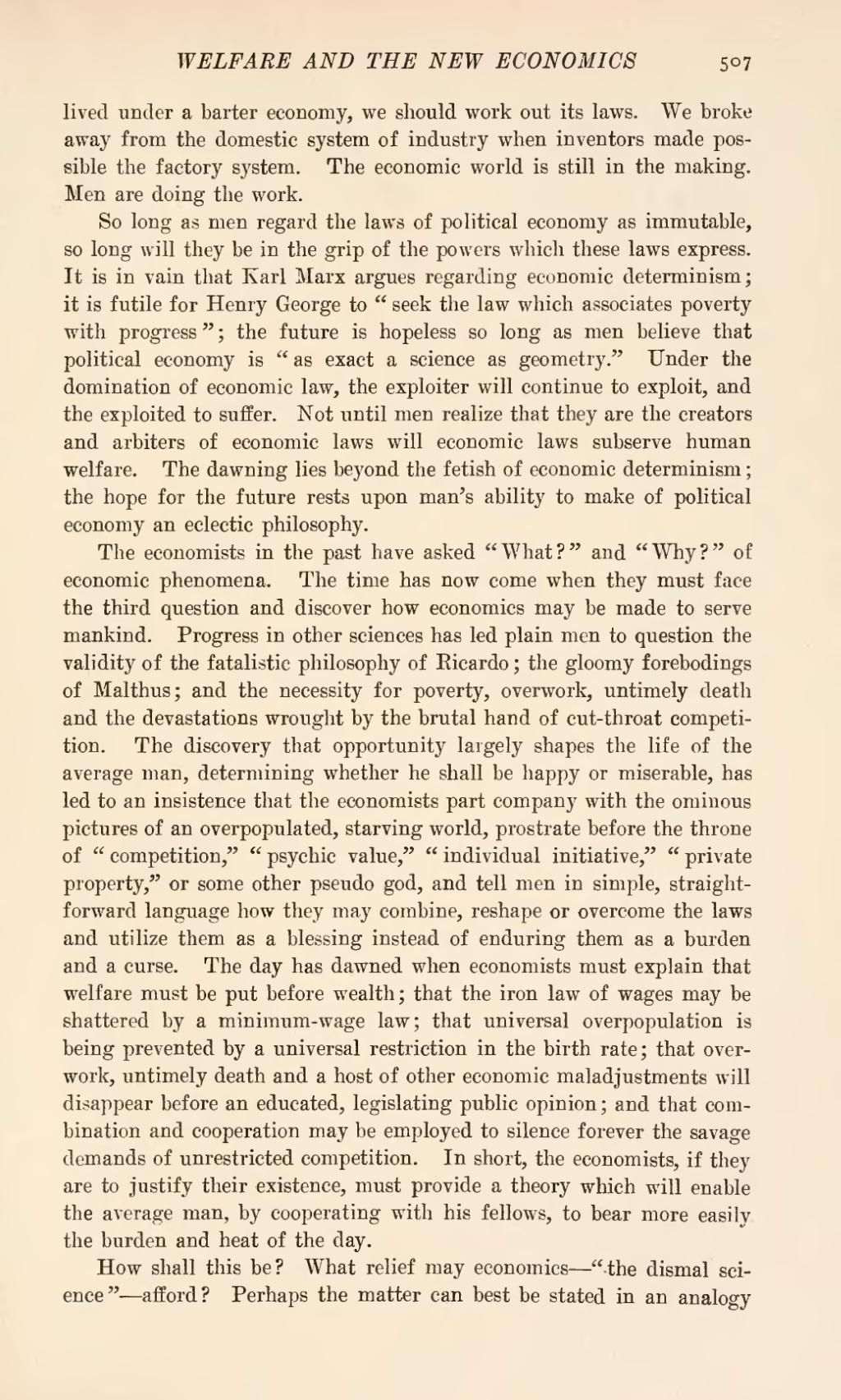lived under a barter economy, we should work out its laws. We broke away from the domestic system of industry when inventors made possible the factory system. The economic world is still in the making. Men are doing the work.
So long as men regard the laws of political economy as immutable, so long will they be in the grip of the powers which these laws express. It is in vain that Karl Marx argues regarding economic determinism; it is futile for Henry George to "seek the law which associates poverty with progress"; the future is hopeless so long as men believe that political economy is "as exact a science as geometry." Under the domination of economic law, the exploiter will continue to exploit, and the exploited to suffer. Not until men realize that they are the creators and arbiters of economic laws will economic laws subserve human welfare. The dawning lies beyond the fetish of economic determinism; the hope for the future rests upon man's ability to make of political economy an eclectic philosophy.
The economists in the past have asked "What?" and "Why?" of economic phenomena. The time has now come when they must face the third question and discover how economics may be made to serve mankind. Progress in other sciences has led plain men to question the validity of the fatalistic philosophy of Ricardo; the gloomy forebodings of Malthus; and the necessity for poverty, overwork, untimely death and the devastations wrought by the brutal hand of cut-throat competition. The discovery that opportunity largely shapes the life of the average man, determining whether he shall be happy or miserable, has led to an insistence that the economists part company with the ominous pictures of an overpopulated, starving world, prostrate before the throne of "competition," "psychic value," "individual initiative," "private property," or some other pseudo god, and tell men in simple, straightforward language how they may combine, reshape or overcome the laws and utilize them as a blessing instead of enduring them as a burden and a curse. The day has dawned when economists must explain that welfare must be put before wealth; that the iron law of wages may be shattered by a minimum-wage law; that universal overpopulation is being prevented by a universal restriction in the birth rate; that overwork, untimely death and a host of other economic maladjustments will disappear before an educated, legislating public opinion; and that combination and cooperation may be employed to silence forever the savage demands of unrestricted competition. In short, the economists, if they are to justify their existence, must provide a theory which will enable the average man, by cooperating with his fellows, to bear more easily the burden and heat of the day.
How shall this be? What relief may economics—"the dismal science"—afford? Perhaps the matter can best be stated in an analogy
